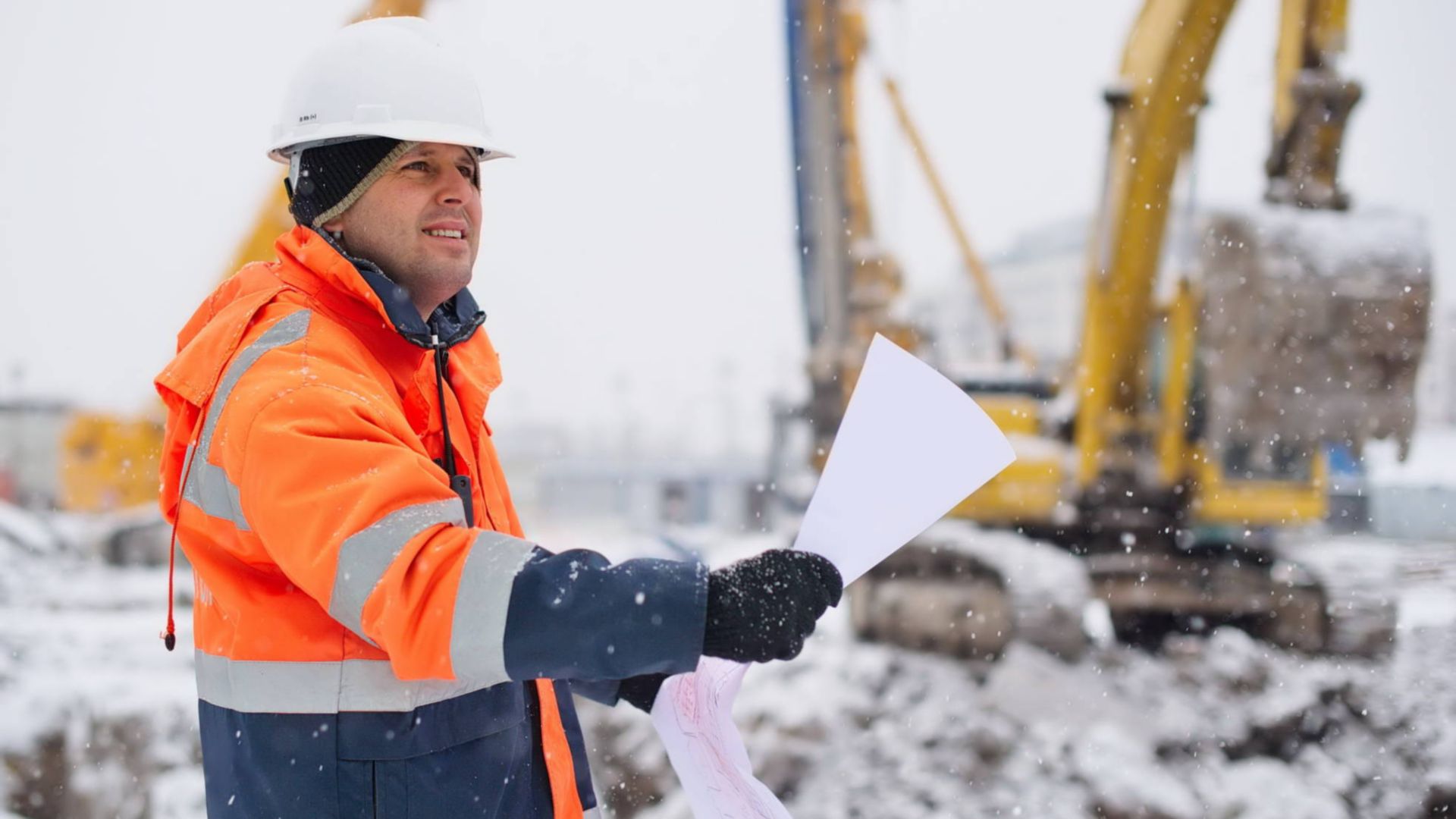10/01/2024
Every year it seems the traditional winter ‘lull’ in construction gets shorter and shorter - in some sectors it is barely noticeable at all. There is now the expectation that construction, repair and refurbishment projects will progress apace throughout the winter, despite the well understood limitations of the materials which are relied upon to realise their goals.
The Winter Dilemma:
Picture a winter night shift where rapid-set concrete repair materials are being used so that a slab can be opened to traffic in the morning. The gut feeling on site is that the repair mortar that has been placed will not be ready for the barriers to come down, it just doesn’t feel right. There is a decision to be made: keep the area closed for a few hours more, with all the disruption and frustration that will bring and hope for the best, or open as planned and risk material failure and further consequences. Neither option is a good one! If the temperature was too low for the material, it may never develop the strength and other characteristics listed on its data sheet and fail prematurely in service. This can lead to call-backs and a less than satisfied client but could also put livelihoods and even lives at risk.
How did we get here?
Maybe program delays pushed the project into winter, meaning that materials specified for warmer temperatures are being used? Maybe there is reliance on past experience – “we used it last winter and it was fine”? Whatever the cause, if materials do not perform as expected, it jeopardises project timelines, repair longevity and potentially structural integrity.
Why traditional materials fall short:
Traditional concretes, mortars, and grouts rely on cement hydration in the presence of water to harden and gain strength. As with all chemical reactions, the hydration process is temperature-dependent and is slowed by cold conditions. Some cement-based products may never reach their design strength if applied in <5°C conditions, or, if they do, this could take several weeks or months with all the impacts that this could have.
If the programme dictates that you must do the work in low temperatures, you have two options – create an environment using enclosures and heaters so that traditional materials can set and gain strength normally, or use products specially formulated for low temperatures.
Innovative Technologies for Low Temperatures:
As a materials manufacturer, much, if not all of our Research and Development effort is trained on solving real problems faced on construction sites. All the material technologies discussed below have been developed with the specific aim of allowing high quality repairs to be carried out on structures at low temperatures (as low as -20°C!)
- Magnesium Phosphate Cement is a blend of magnesium oxide and ammonium dihydrogen phosphate that reacts with water to rapidly produce heat and strength, significantly quicker than most Ordinary Portland Cement (OPC) based products.
- Polymethyl Methacrylate (PMMA) is a thermoplastic resin, requiring an activator to catalyse, and is rapid curing, often achieving full cure in an hour. As these products don’t contain water, they are ideal for use in low temperatures.
- Polyurethane Methacrylate (PUMA) is rapid curing and requires a catalyst. Unlike traditional materials, but like PMMA, the formation of bonds at the molecular level is unaffected by time, making it extremely durable. PUMA products display elongation properties, making them useful for crack bridging, even at very low temperatures.
- Reactive Acrylic Resins, when combined with a catalyst, have accelerated chemical reaction rates, generating significant heat and therefore allowing them to be used in very low temperatures. The curing time is extended by lower temperatures, but the chemical reactions do continue, unlike cementitious materials incorporating water, which would simply freeze, meaning the reaction never completes.
- Low Temperature Epoxies are specially formulated to provide positive cures at low temperatures. The resins and their curing agents (‘hardeners’) radiate heat during the reaction phase, enabling the chemical reaction to complete, even in low working temperatures.
- Polyester Resin products require a specific catalyst to effectively polymerise the resin. When combined, an exothermic chemical reaction takes place and curing takes place rapidly, normally within two hours. This enables them to be used in ambient temperatures as low as 0°C.
- Epoxy Acrylate Resins is a technology that can be incorporated in formulations to achieve a very fast curing product. The exothermic polymerisation reaction generates significant heat, which is sufficient to achieve full cure even at low temperatures.
- Modified Cementitious Binders contain chemical ‘accelerators’ which ensure full cure is achieved in temperatures that standard cementitious products could not cope with.
What form do they come in?
Sika® leverages these technologies to create a diverse range of products suitable for structural concrete repairs including:
Repair mortars – can be applied at temperatures as low as -20°C and achieve in excess of 70 N/mm2 compressive strength in just 2 hours.
Resin mortars - can be applied at temperatures as low as 0°C and achieve up to 50 N/mm2 compressive strength in just 1 hour.
Structural adhesives - can be applied at temperatures as low as 5°C and achieve up to 55 N/mm2 compressive strength in 1 day.
Rigid bonding adhesives - can be applied at temperatures as low as 5°C and achieve in excess of 50N/mm2 compressive strength in 1 day.
Modified cementitious mortars and concretes – can be applied at temperatures as low as 0°C and achieve in excess of 25 N/mm2 compressive strength in just 2 hours.Resin grouts and resin anchoring systems - can be applied at temperatures as low as -10°C and achieve in excess of 95N/mm2 compressive strength in 7 days.
PMMA-based car park coatings - can be applied at temperatures as low as 0°C and can be used for rapid deck refurbishment in the winter months, whilst offering exceptional crack-bridging properties.
For more information on these specialist products and their applications, please contact Sika Specialist Construction Solutions at scs.technical@uk.sika.com or call 08081 410712.
Sika, ‘Building Trust’ since 1910.

